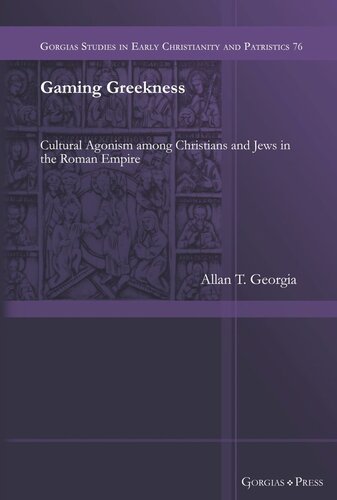

Most ebook files are in PDF format, so you can easily read them using various software such as Foxit Reader or directly on the Google Chrome browser.
Some ebook files are released by publishers in other formats such as .awz, .mobi, .epub, .fb2, etc. You may need to install specific software to read these formats on mobile/PC, such as Calibre.
Please read the tutorial at this link: https://ebookbell.com/faq
We offer FREE conversion to the popular formats you request; however, this may take some time. Therefore, right after payment, please email us, and we will try to provide the service as quickly as possible.
For some exceptional file formats or broken links (if any), please refrain from opening any disputes. Instead, email us first, and we will try to assist within a maximum of 6 hours.
EbookBell Team

4.0
76 reviewsHow the Jewish and Christian communities that emerged in the early Roman Empire navigated a ‘Hellenistic’ world is a longstanding and unsettled question. Recent scholarship on the intellectual cultures that developed among Greek speaking subjects of Rome in the so-called Second Sophistic as well as models for culture and competition informed by mathematical and economic game theories provide new ideas to address this question. This study offers a model for a kind of culture-making that accounts for how the cultural ecosystems of the Roman Empire enabled these religious communities to win legitimacy and build discourses of self-expression by competing on the same cultural fields as other Roman subjects. By considering a range of texts and figures—including Justin Martyr, Tatian, the ‘second’ Paul of the Acts of the Apostles, Lucian of Samosata, 4 Maccabees, and Favorinus of Arelate—this study contends that competing for legitimacy enabled those fledgling religious communities to express coherent cultural identities and secure social credibility within the complex milieu of Roman Imperial society.